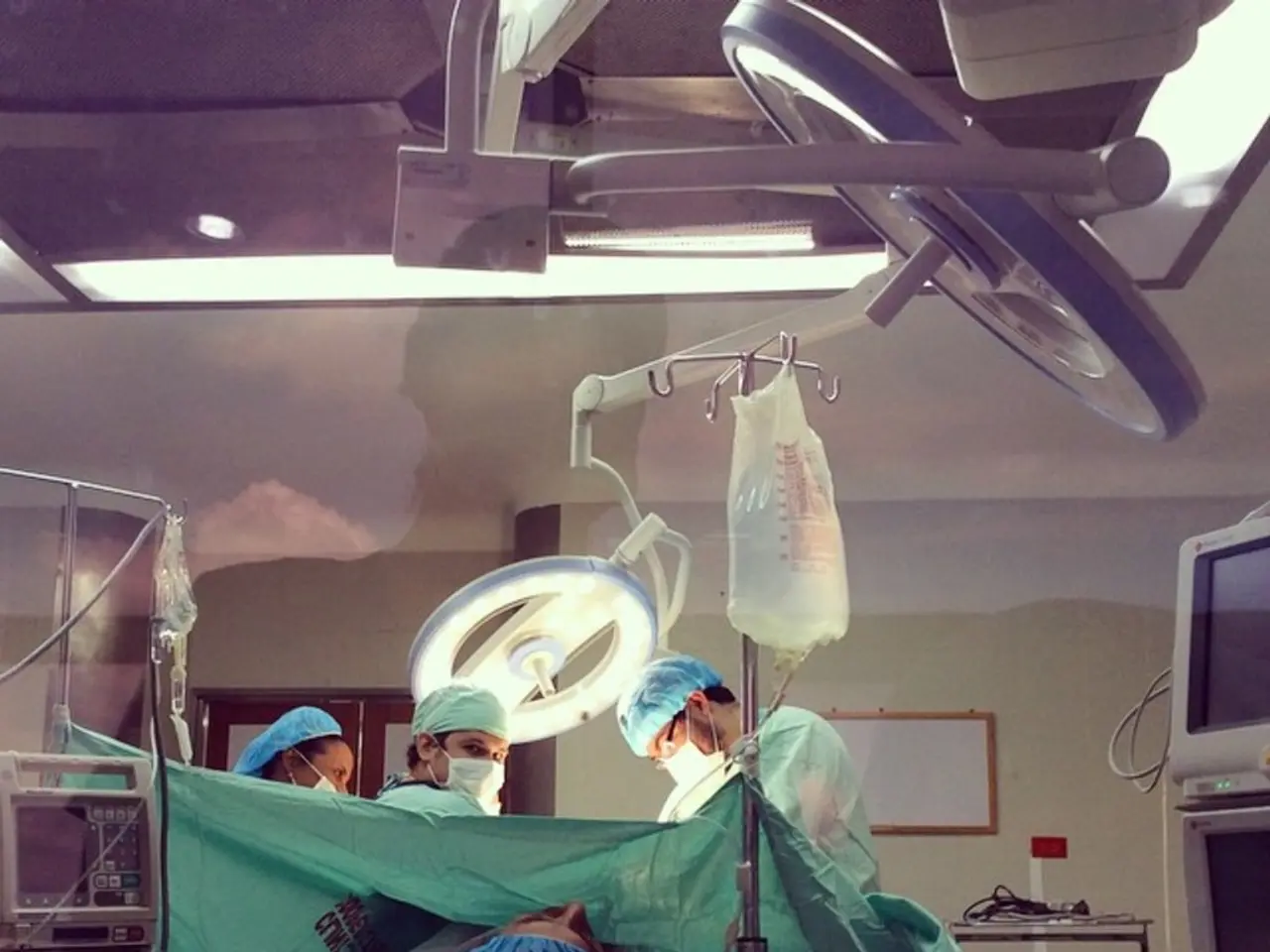UK sanctioning of advanced robotic surgical equipment
The National Institute for Health and Care Excellence (NICE) has given its approval for the use of eleven robotic surgery systems within the UK's National Health Service (NHS), specifically targeting soft tissue and orthopaedic procedures. This marks a significant step forward in the adoption of robotic-assisted surgery (RAS) technology, offering more precise movements than the human hand and the potential to revolutionise surgical care in specialist NHS centres.
Over the past seven years, the use of robotic-assisted surgical procedures has seen a substantial increase of over 500% within the NHS and private sectors. By 2023, over 259,000 such procedures had been performed. For instance, at Calderdale and Huddersfield NHS Foundation Trust, robotic systems have effectively taken on the workload equivalent to multiple full-time staff, improving workflow and productivity by enabling surgical teams to be streamlined and redeployed during operations.
The NHS is now planning to expand the adoption of robotic surgery beginning in 2026, in accordance with NICE guidelines, as part of a broader 10-year health strategy to integrate AI and advanced technologies into clinical care pathways.
Clinical outcomes for robotic-assisted surgeries are generally comparable or superior to traditional methods, with some studies noting better post-operative recovery and reduced length of hospital stay. For example, robotic surgery for radical prostatectomy in the NHS was found to reduce average inpatient length of stay by about 50% and post-operative stay by 49%, while improving surgeon labor productivity by 29%.
Patients report greater safety perception, quicker recovery, and overall satisfaction, highlighting both psychosocial and physical benefits of robotic surgery. Economic analyses suggest while initial investments are high, there are potential long-term savings through fewer complications, shorter hospital stays, and more efficient use of surgical teams.
NICE continues to assess emerging robotic surgery systems with an "early value assessment" approach, ensuring ongoing evaluation for safety, efficacy, and cost-effectiveness. Technological trajectories include the integration of AI, Internet of Robotic Things (IoRT), and organ preservation technologies to create fully integrated surgical ecosystems, potentially expanding the range of robotic procedures even further.
The NHS 10-Year Health Plan emphasises continued development of robotic process automation and AI-enabled healthcare, aiming for seamless innovation adoption as part of routine care. New roles at NICE include expanding technology appraisals to cover devices and digital products, and phasing out outdated technologies to free capacity for more effective ones.
In summary, the approved robotic surgery systems are currently in wide and growing use within the NHS, demonstrating clear benefits in precision, patient outcomes, staff productivity, and long-term cost savings. The NHS is committed to expanding these technologies while maintaining rigorous ongoing evaluations to maximise clinical and economic value.
The data gathered over the next three years will allow NICE to evaluate how these technologies can improve patient care and help ensure NHS resources are directed toward interventions that deliver meaningful clinical benefits and long-term value to the health service. The approved systems include those for hernia repair, removal of tumours, gallbladder removal, full and partial knee replacement procedures, and hip replacements.
For comments or questions, please contact [email protected]. The evidence collected will lead to the publication of a Health Technology Evaluation, with the first one, looking at AI in analysis of X-rays for lung cancer, coming out in September 2023. The author's contact for comments or questions is [email protected].
This article was prepared using AI. The approval is conditional and further evidence will be collected over the next three years to demonstrate the cost-effectiveness of robot-assisted surgery. Dr. Anastasia Chalkidou, program director of NICE's HealthTech program, stated that these innovative technologies have the potential to transform both soft tissue and orthopaedic surgical care in the NHS. A roll-out of robotics in the NHS is being accelerated, with millions of patients expected to benefit. The UK Health Security Agency (UKHSA) has launched innovative metagenomic surveillance to enhance health security. These developments fall under the categories of "Insights", "Medical Device Manufacturing Insights", and "Digital Health & AI Insights". New post-market surveillance regulations have been laid before the UK Parliament. Patient organizations reported that the biggest benefits of robotic surgery include faster recovery times, shorter hospital stays, quicker return to work, less pain, and reduced scarring compared with traditional surgery.
- The use of robotic-assisted surgery technology in the NHS is anticipated to undergo further expansion, integrating AI, Internet of Robotic Things (IoRT), and organ preservation technologies, potentially revolutionizing digital health care.
- Clinical outcomes for robotic-assisted surgeries are often favorable, with shorter hospital stays, faster recovery, and improved surgeon efficiency compared to traditional methods.
- As part of a 10-year health strategy, the NHS aims to integrate AI and advanced technologies into patient care pathways, aligning with the assessment and approval of new technologies by the National Institute for Health and Care Excellence (NICE).
- The integration of artificial intelligence, particularly in the analysis of X-rays for lung cancer, is one of the innovative technologies being assessed by NICE, with the publication of a Health Technology Evaluation scheduled for September 2023.




